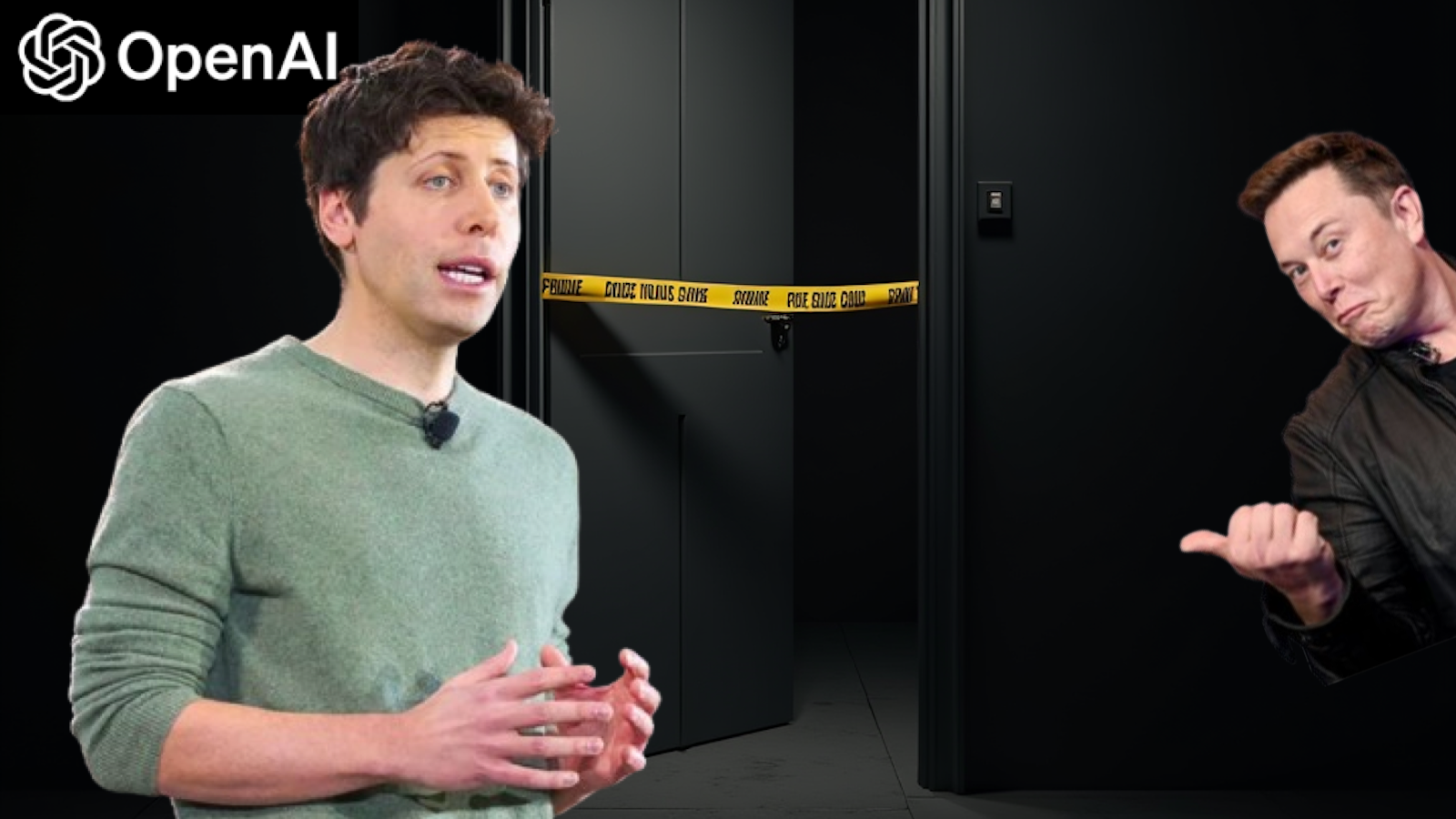Looks like President Donald Trump isn’t the only one playing 5D chess.
Elon Musk just threw a $97.4 billion curveball at OpenAI, and the board quickly rejected it.
OpenAI is standing firm on its “not for sale” stance.
But here’s the twist, this might not be about actually buying OpenAI.
A legal expert points out that Musk’s play forces OpenAI’s hand.
How?
It’s testing whether OpenAI is still a nonprofit or just another tech giant that serves it’s investors like Microsoft.
Talk about a game of pickle.
If OpenAI is transitioning to a for-profit model, Musk’s bid puts them in a legal bind. Gotta make those profits for the investors, right?
So, is Musk making a serious offer, or just forcing OpenAI to define what it really is?
Either way, he’s got them backed into a corner where they’ll have to answer not just to him, but to the courts.
Things keep getting more interesting by the day!
AP News reports:
OpenAI says its board of directors has unanimously rejected a $97.4 billion takeover bid by Elon Musk.
“OpenAI is not for sale, and the board has unanimously rejected Mr. Musk’s latest attempt to disrupt his competition,” said a statement Friday from Bret Taylor, chair of OpenAI’s board.
OpenAI attorney William Savitt in a letter to Musk’s attorney Friday said the proposal “is not in the best interests of OAI’s mission and is rejected.”
Musk, an early OpenAI investor, began a legal offensive against the ChatGPT maker nearly a year ago, suing for breach of contract over what he said was the betrayal of its founding aims as a nonprofit.
OpenAI has increasingly sought to capitalize on the commercial success of generative AI. But the for-profit company is a subsidiary of a nonprofit entity that’s bound to a mission — which Musk helped set — to safely build better-than-human AI for humanity’s benefit. OpenAI is now seeking to more fully convert itself to a for-profit company, but would first have to buy out the nonprofit’s assets.
ADVERTISEMENTThrowing a wrench in those plans, Musk and his own AI startup, xAI, and a group of investment firms announced a bid Monday to buy the nonprofit that controls OpenAI. Musk in a court filing Wednesday further detailed the proposal to acquire the nonprofit’s controlling stake.
Musk was there when when OpenAi was made.
(He also had a part in creating PayPal. How does he do it??!)
Elon Musk played a key role in the creation of OpenAI, even coming up with the name “OpenAI” to reflect its commitment to being open source.
But Sam Altman transformed this open-source, non-profit company into a closed-source, for-profit company. pic.twitter.com/bolbEpgqpX
— DogeDesigner (@cb_doge) January 23, 2025
But he knows that Sam Altman is not trustworthy.
"I don't trust OpenAI and Sam Altman. I don't think we want to have the most powerful AI in the world controlled by someone who is not trustworthy."
一 Elon Musk pic.twitter.com/98HBKBCMGe
— DogeDesigner (@cb_doge) November 16, 2024
Here’s an attorney’s take on Musk’s $97M move:
What Elon Musk just did in his $97 billion bid for OpenAI is genius.
ADVERTISEMENTThe previous go-private price was $40 billion.
He’s playing chess.
Here’s why.
Delaware courts apply something called the “Revlon” rule to M&A bidding situations.
When a board decides to sell a company, their legal fiduciary duty shifts to getting the highest price for shareholders.
But OpenAI isn’t a normal company.
It started as a nonprofit, then created a for-profit arm, OpenAI LP, to raise investment. That structure creates a legal gray area.
Musk’s bid isn’t just about buying OpenAI. It’s about forcing a decision.
If OpenAI’s board even considers transitioning fully into a for-profit company, Musk’s bid puts them in a position where they might have to apply Revlon rules, maximizing value just like any other corporate sale.
It’s a strategic move that could expose whether OpenAI is still mission-driven or if it’s already just another big tech company playing by Wall Street rules.
And that’s the real play.
Musk is challenging OpenAI’s leadership on both a legal and ethical level, testing whether their decisions align with their original vision or the financial incentives of investors like Microsoft.
ADVERTISEMENTSam Altman and OpenAI’s board rejected Musk’s offer outright. But that response raises more questions than it answers.
You see, they probably have a duty to create a special committee, consider all offers and entertain an auction.
If OpenAI isn’t a company that can be bought, why did they take billions in investment?
If they are a company that can be bought, why turn down $97 billion?
Either way, Musk has put them in a position where they have to justify their existence, not just to him, but to the Delaware Chancery Court.
What Elon Musk just did in his $97 billion bid for OpenAI is genius.
The previous go-private price was $40 billion.
He’s playing chess.
Here’s why.
Delaware courts apply something called the “Revlon” rule to M&A bidding situations.
When a board decides to sell a company,… pic.twitter.com/XpdtLTDej2
— SMB Attorney (@SMB_Attorney) February 11, 2025




Join the conversation!
Please share your thoughts about this article below. We value your opinions, and would love to see you add to the discussion!